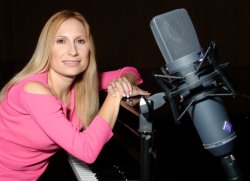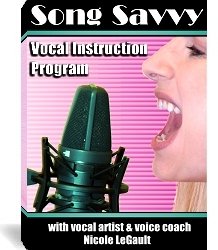Etobicoke 's Best Music School for Piano & Keyboard Lessons, Voice/Singing/Public Speaking Lessons, Guitar Lessons, Bass Lessons, Drum Lessons, Violin and Fiddle, Viola, Cello, Flute, Piccolo, Mandolin, Banjo, Ukulele Lessons, Theory Lessons, Preschool Program, Rock Band S'Cool, Glee Club, Saxophone, Clarinet Lessons
Call to Inquire: 416-614-7529 Toll Free: 1-844-A-Sharp-1
A Sharp School of Music
The Royal York Plaza
1500 Royal York Road
Etobicoke, Ontario M9P 3B6
Tel: 416-614-PLAY (7529) or
416-614-SING (7464)
Toll Free: 1-844-274-2771
About the Teachers
There are presently six highly qualified and experienced voice specialists teaching at A Sharp School of Music-Etobicoke, which is the west side of Toronto. Not the least of which is the president, founder of the Song Savvy
Vocal Instruction Program:
Nicole LeGault.
"I found that the training I had experienced and the technique I had developed once I had exhausted my various teacher's knowledge, still was not enough. Through my career as a teacher, I first needed to develop new and better ways of explaining everything that the student needs to know to reach his/her full potential. I then had to invent new and better ways, tricks of the trade, to help these students achieve their goals, i.e.) Strengthening the diaphragm (more power, especially for those wishing to perform musical theatre or anything high and loud), increasing range (high and low), mastering diction and dynamics (dynamics is the art of getting louder and softer, adding texture to the sound), using the head register (guiding the sound, via the air, into the sinus cavities to create head tones...), and one of the most useful tools is a visualization technique that helps to structure the projection of the sound. Visualizing vocal sound is not a new concept, it has been around for hundreds of years. What I have done is modify the various shapes and directions of the sound to accommodate for modern styles and techniques found in music today. In short, there is nothing that myself and one enthusiastic student cannot achieve."
In a voice lesson, we learn:
-Proper breathing and use of the diaphragm muscles
-How to use the vocal cords correctly
-How to achieve head tones using the head register
-Proper facial expressions for the different vowel sounds
-Proper placement of the sound (for bass, treble, chest and nasal tones)
-How to safely and effectively increase range
-How to project the voice using a visualization technique
-Proper use of dynamics
-Proper microphone technique
-Sight reading, ear training, and harmony are available but not required - Sight reading, (solfeggio) can be useful in a career involving musical theatre or studio session work.
Testimonials:
"Before, my record company use to hate it when I wanted to sing on my recordings. They would be polite and try to insist that I rap instead, saying I sounded better when I just rapped. But now, after about eight or nine lessons with Nicole, they love my singing and they don't want me to rap any more! They want me to sing all the time."
Andrew Kolu: Recording Artist
Contraband/Warner Records
"My music is very important to me. I tried this other vocal course that made a lot of really big promises, but after ten lessons, I learned absolutely nothing. None of what the teacher was saying made any sense to me at all. I had spent a lot of money and I was discouraged, but Nicole's ad looked promising so I tried that too. Well! In just the introductory lesson, I learned more than I had ever imagined there could be to know. So many aspects of the voice that I didn't even know existed. I know my singing improved dramatically. I'm also a producer and the owner of a recording studio. Sometimes, I get a client who's singing is not really up to par and I always say, "Hey, you're paying me a lot of money to produce your songs here, you really should go to Nicole for a few singing lessons before we record the vocals." When they do, the improvement is always substantial."
Amos Carlen: Producer/Recording Engineer
Brumby Music
"Before I started taking lessons from Nicole, I was abusing my throat so badly when I sang that when I was done, I could see that inside it would be all red and raw and swollen and sometimes I would actually spit out blood. Nicole taught me how to use my diaphragm muscles instead of my throat, and how to sing with a raunchy sound using a technique that doesn't do me any harm. It sounds way better now, because she also taught me how to get a better projection and tonality and where my voice used to be thin and restricted, now I can just open right up and get a really big full sound. With the ability to sing well came the confidence to try to sing professionally, and now I do it all the time with my band.
Suzanna D.
Lead vocalist for G-Ride
Toronto's Best Voice Lessons
Practice Tip of the Week: January 12, 2026: Your teacher will advise you how long your individual practice times should be depending upon your level and age. Practicing often is more productive than having few lengthy practices. Try to make sure you practice later on the same day as your lesson, that way you can reinforce the new things you've learned before they slip your mind.
 | ||||||
Call now to book a free introductory
Voice Lesson
416-614-SING (7464)
Brand new beginners welcome :-)
A Sharp School of Music is also the home of the "Song Savvy" Vocal Instruction Program on DVD
Toronto's Best
Voice/Vocal/Singing Lessons For Adults








